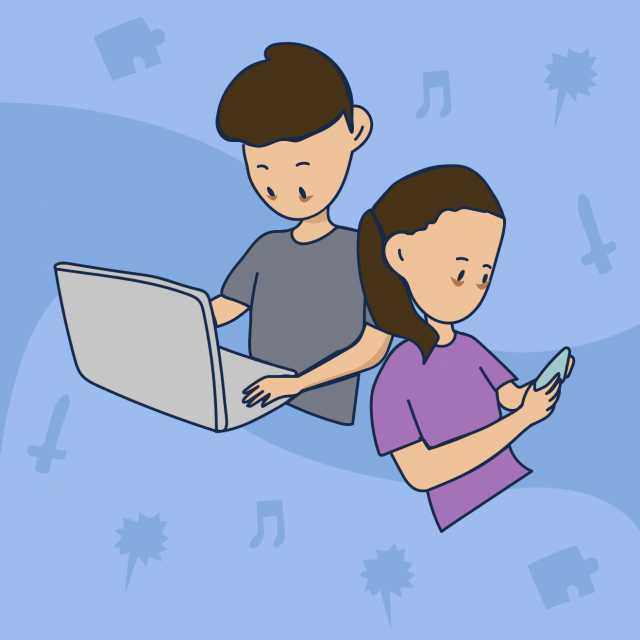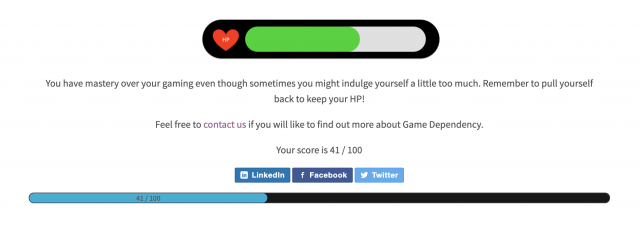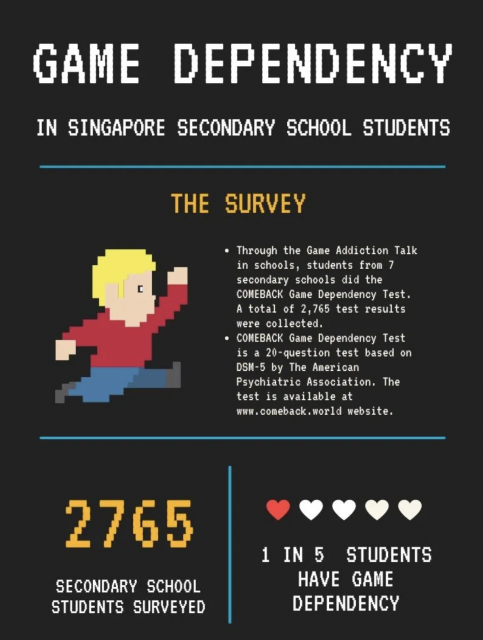
Gaming can be a source of distraction when students are learning from home.
Illustration Credit: Nicole Soh
Taylon, 13, used to spend about five hours a day playing games like Valorant, Genshin Impact and the huge catalogue of user-generated games on Roblox.
After home-based learning was introduced during the Circuit Breaker last April, he finds himself gaming longer, sometimes up to eight hours a day.
He said: “I ended up playing more games since there’s more time during home-based learning and I’m at my computer.”
“My parents are very aware of my gaming addiction. They’re probably concerned about it,” Taylon said sheepishly. “I’m quite concerned about my reliance on gaming too.”
Like Taylon, more students in Singapore are showing signs of gaming dependency as they spend more time attending online lessons from the comfort of their own bedrooms.
Ms Pauline Phoon, the founder of social enterprise COMEBACK, said: “Secondary schoolers having unhealthy gaming habits is a concern to educators, parents and even gamers themselves.”
She said some signs of gaming dependency include gaming longer than intended and neglecting dental care. In extreme cases, some may even miss school or display violent behaviour towards family members.
COMEBACK offers a group therapy programme that helps young people overcome gaming addiction through physical games and life coaching by trained psychologists. The programme costs a total of $2,860, inclusive of an interview assessment for enrolment and the programme’s 6 weekly sessions.
On its website, visitors can find a 20-question game dependency test, adapted from the National Institute of Education’s 2010 Gaming Addiction Screening survey. They will receive a score out of 100 when they complete the test. The higher their score, the more likely that they are highly dependent on gaming.

The gaming dependency score is presented in the form of Health Points (HP).
Screenshot from COMEBACK
Gaming in Singapore’s Secondary Schools
In 2020, COMEBACK surveyed 2,765 students from seven secondary schools. Of all the students surveyed, 15.4 per cent were classified to be moderately dependent on games. 4 per cent were found to be highly dependent on games.

Results from surveying secondary school students in selected schools across Singapore.
Screenshot from COMEBACK
Huios, 13, a secondary school student who scored 61 out of 100 on the gaming dependency test, said: “I am a little worried about my score on the gaming dependency test.”
“I do face difficulty paying attention in class during home-based learning, because I have my phone right next to me and sometimes play games during class time.”
“Currently, I’m trying to cut down screen time by reading fictional story books,” he added.
Impact of Gaming on Physical and Mental Health
Ms Phoon observed that most of her clients in COMEBACK are troubled students who are 14 to 15 years old.
“COMEBACK’s clients who come in already have very deep issues that they are struggling with, be it family or personal things that they are going through,” Ms Phoon said.
Mental health is another issue that is associated with gaming dependency.
“To talk about mental health and wellness, we need to go and look at what is the reason why the person sought out gaming, and how we bridge that to real life. That’s always the challenge,” she said.
The World Health Organisation (WHO) has listed gaming disorder as an official medical condition in 2019, calling it a “modern disease”.
#UrbanWireTries
In The UrbanWire team, a good number of us are also huge fans of Omori, Undertale and Genshin Impact. To check if we might also have game dependency issues, we took the COMEBACK test and here’s how we fared.
Chart by Nicole Soh
The highest scorer among us is our designer Samson Hong. With a score of 53 out of 100, he’s the only one in the team who’s considered moderately dependent on gaming. In a typical week, Samson spends about 14 hours on playing games like Genshin Impact and Apex Legends.
Our editor Teo Yin Yan and social media manager Sydney Pek have the lowest score at 20. They game only occasionally, as both prefer watching shows on Netflix and Disney+ for relaxation. You can also take the test on COMEBACK’s website. Tell us if the score has captured your game dependency level well!
Edited By: Adiel Rusyaidi Ruslani and Charlotte Chang
Proofread By: Teo Yin Yan and Tricia Kuan
